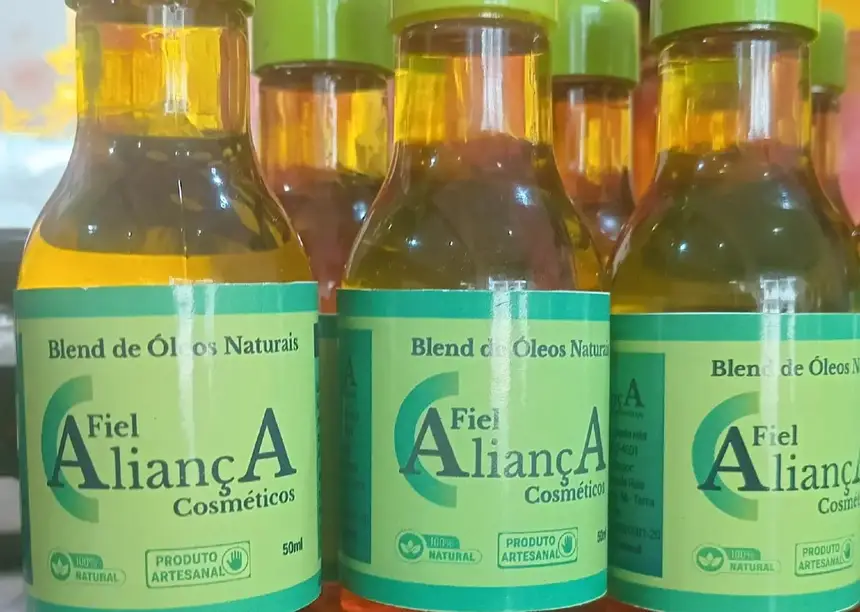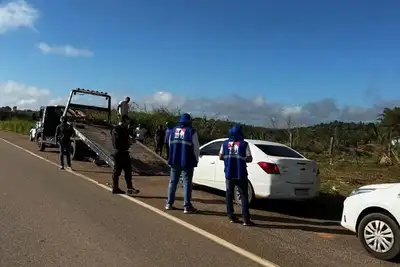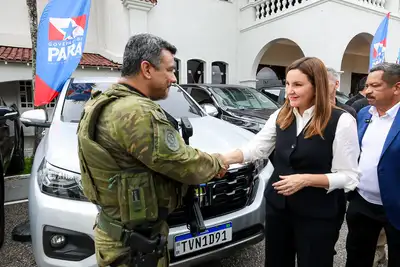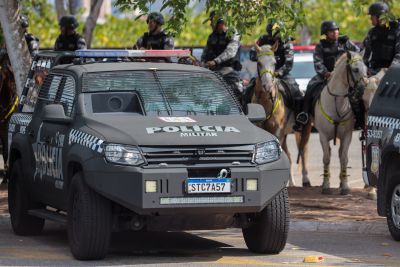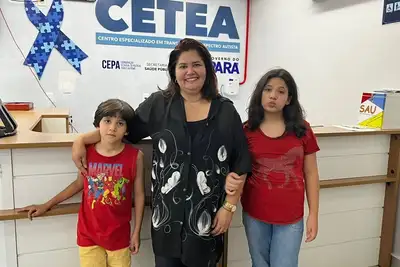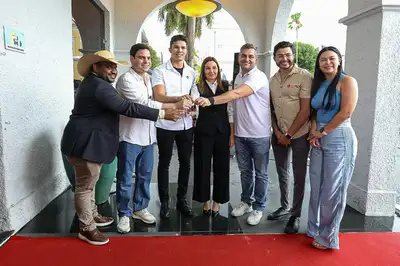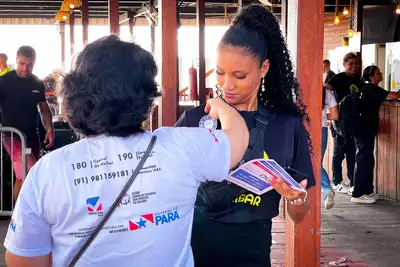Technical Assistance and Rural Extension Company (Emater) encourages solidarity economy
In Belém, State Week of Family Agriculture highlights a roundtable discussion with public school students and women micro-entrepreneurs
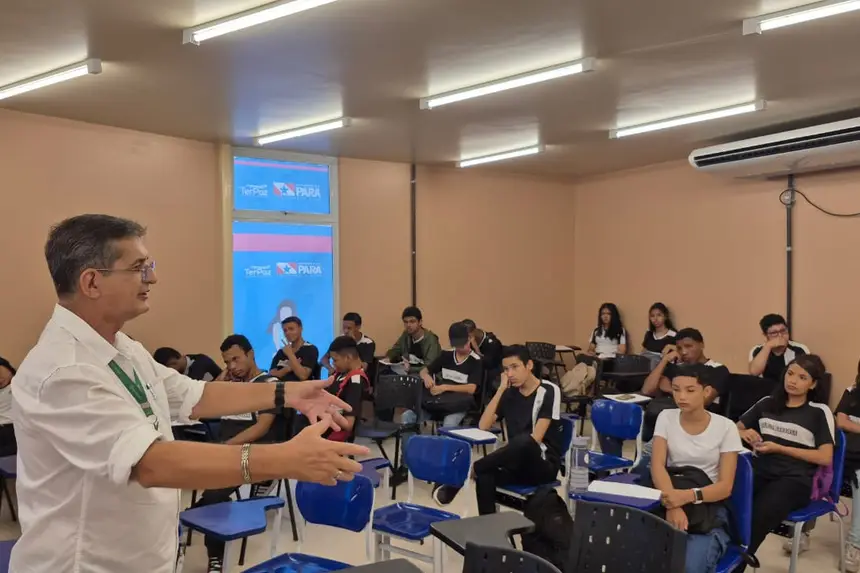
At the Usina da Paz Terra Firme, in Belém, the local office of the Technical Assistance and Rural Extension Company of Pará (Emater) gathered 60 students from the Mário Barbosa State School of Elementary and Secondary Education (EEEFM) and women micro-entrepreneurs from the surrounding area to discuss Solidarity Economy. The event, held on Wednesday (23), addressed the concept that deals with a set of social and economic practices based on self-management, cooperation, and equitable distribution of benefits and advantages.
This action is part of the program for the 1st State Week of Family Agriculture, which the Government of Pará promotes in all 144 municipalities of Pará, through Emater, until Friday (25), in commemoration of July 25, World Day of Family Agriculture.
According to the facilitator of the roundtable, agronomist Jader Moura, a specialist in Public Management and Agribusiness and a master's degree holder in Agricultural Sciences, the moment contributed to bringing vulnerable audiences from the outskirts of the capital closer together.
Young people and women participated, and the focus is on a business model proposal that does not aim for profit alone: but sustainable development, community, and fair opportunities and results in commercial relations: “Solidarity economy is an alternative to vertical capitalism. The way we produce and consume builds history and impacts poverty, urban violence, quality of life, and environmental preservation. When we encourage small enterprises, many of which rescue and continue ancestry and tradition, we are acting for social inclusion and human dignity,” summarized Jader Moura.
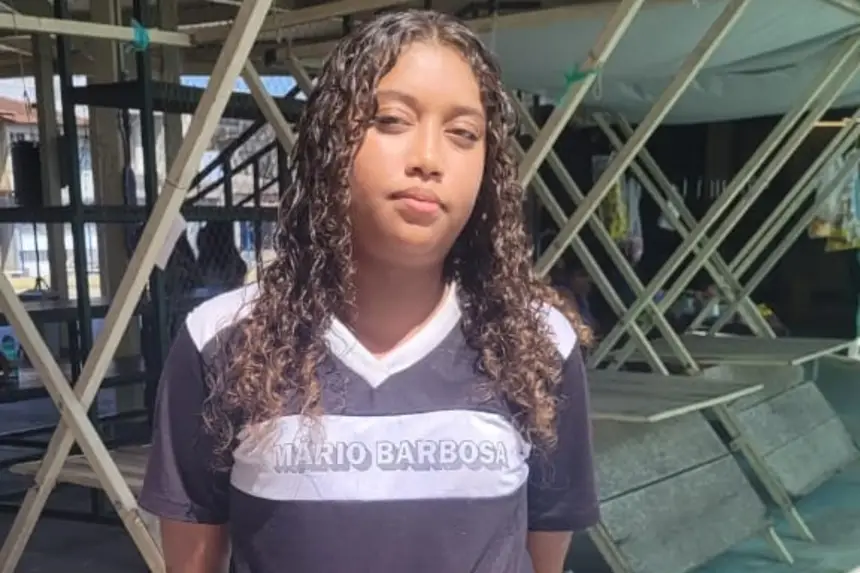
For Wendyla Felizardo, 16 years old, a first-year high school student, producing, selling, and buying within the law, with accessible values and diversity, is a “right”: “I feel that nowadays it is very difficult to have good working conditions, to acquire what we need for our necessities, because everything is expensive and the system is exploitative,” she reports.
The teenager intends to study Law and become a criminal lawyer, impacted by a family event: “My uncle was arrested and convicted without due legal process, in my view, and this happened because he is black and poor. I think we suffer a lot from racism and prejudice. The youth is here to change the scenario,” she considers.
Entrepreneurship

Participating in the dialogue guided by Emater, micro-entrepreneur Josele Reis, 36 years old, owner of the beauty salon Studio Josele Reis, on Rua 2 de Junho, in Terra Firme, and creator of the handmade cosmetics brand Fiel Aliança, sought information on marketing strategies for a hair blend aimed at the Afro-descendant clientele.
“It is a mix of nine natural oils, of exclusive formulation, created by me: I use, for example, guava leaves and whole okra. The blend embodies my experience as a black woman with curly hair, 4A curl type [a universal classification of curls endorsed by hairdressers], who always straightened her hair to be ‘accepted’ and has recently embraced her beauty of defined curls,” explains Josele Reis.
One of the expectations regarding Emater's support is the promotion of the product and brand at fairs and festivals that contemplate the realities of quilombola communities, terreiros of Afro-descendant religions, and black social movements. In 2022, Emater established an Internal Policy on Diffused and Collective Rights (PICD), in order to contextualize public technical assistance and rural extension (ater) to traditional peoples of African descent and terreiros (Potmas).
Text by Aline Miranda


